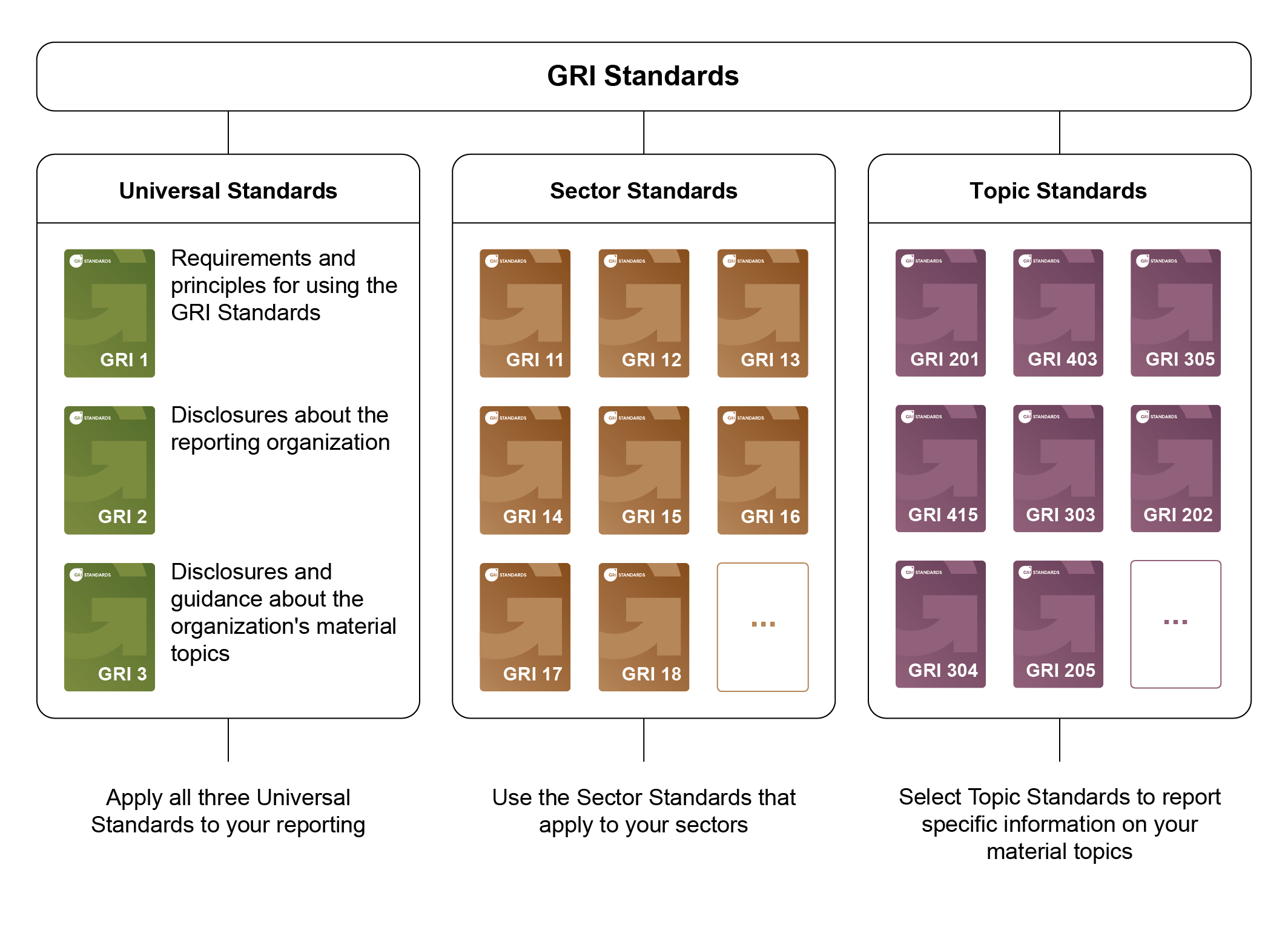The Global Reporting Initiative (GRI) standards are a set of global standards for sustainability reporting that help organizations understand and communicate their impacts and contributions on the Environment, Social, and Governance (ESG) in a consistent and comparable way. The GRI standards are the most widely used sustainability reporting standards in the world as they can be used for ESG reporting by any organization, regardless of its size, sector, or location.
The GRI Standards are divided into three categories: Universal, Sector, and Topic standards.
- The Universal Standards, which have been updated to include reporting on human rights and environmental due diligence in line with intergovernmental expectations, apply to all organizations. There are three universal standards that apply to all organizations.
- The Sector Standards help organizations report more consistently on their impacts in specific sectors.
- The Topic Standards, which have been adapted to be used with the revised Universal Standards, provide disclosures for specific topics. They cover several topic-specific standards that cover various ESG issues, such as climate change, human rights, diversity, anti-corruption, etc.
The GRI standards are based on the principle of materiality, which means that organizations should report on the ESG issues that are most relevant and significant for their business and their stakeholders. The GRI standards can help organizations improve their ESG performance and transparency, as well as align their ESG reporting with the expectations and needs of their stakeholders, such as investors, customers, employees, regulators, communities, and society at large. The GRI standards can also help organizations to comply with the ESG reporting regulations and frameworks that exist in different jurisdictions and sectors, such as the EU Corporate Sustainability Reporting Directive (CSRD), the EU Taxonomy Regulation, the TCFD Recommendations, etc.
I hope this blog has helped you to have an understanding of the GRI Standards. If you want to learn more about the GRI standards and how to use them for ESG reporting, you can visit their websitehttps://www.globalreporting.org/ or access their resource center (https://www.globalreporting.org/standards). You can also download the GRI standards for free from their websitehttps://www.globalreporting.org/.
